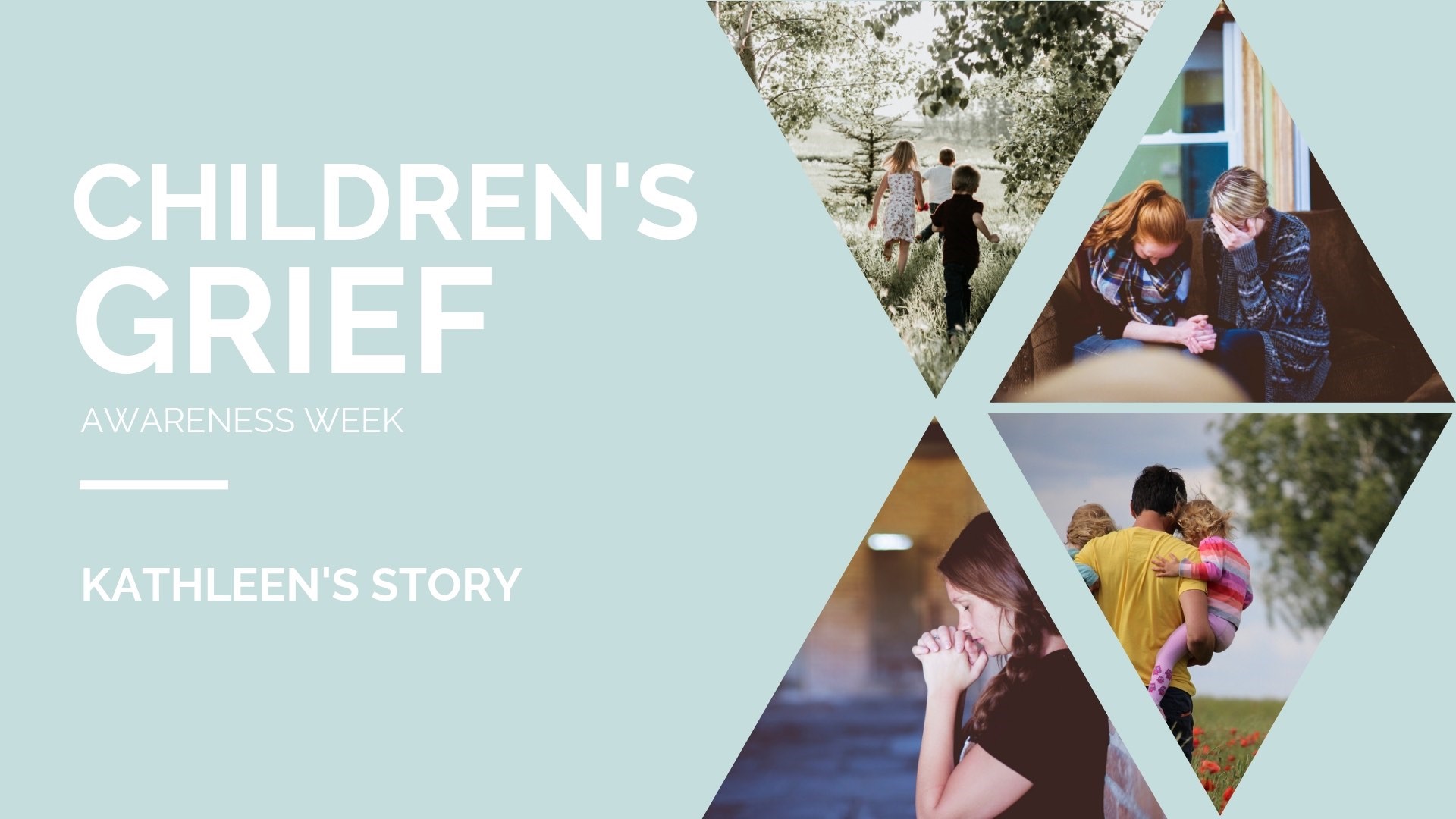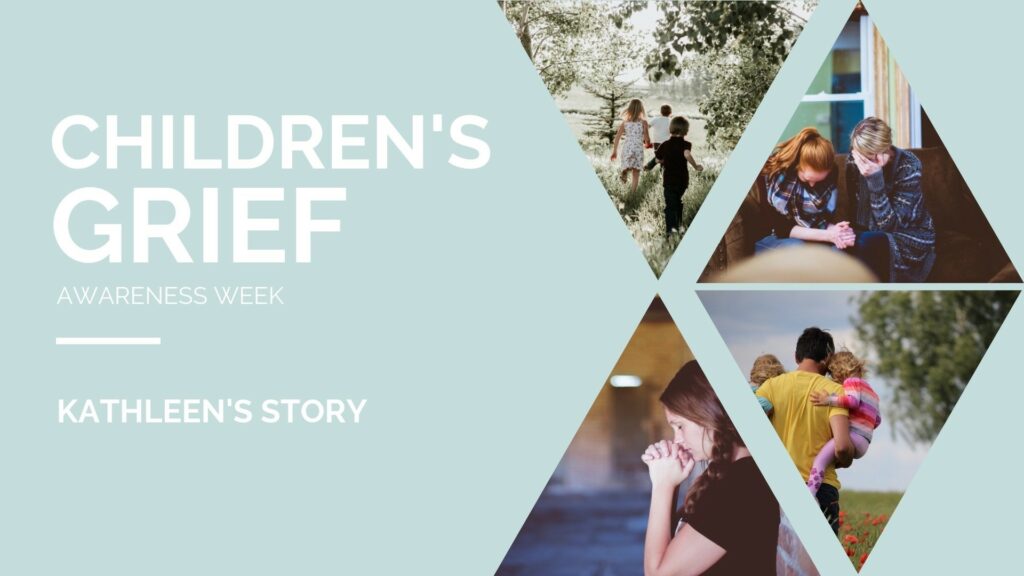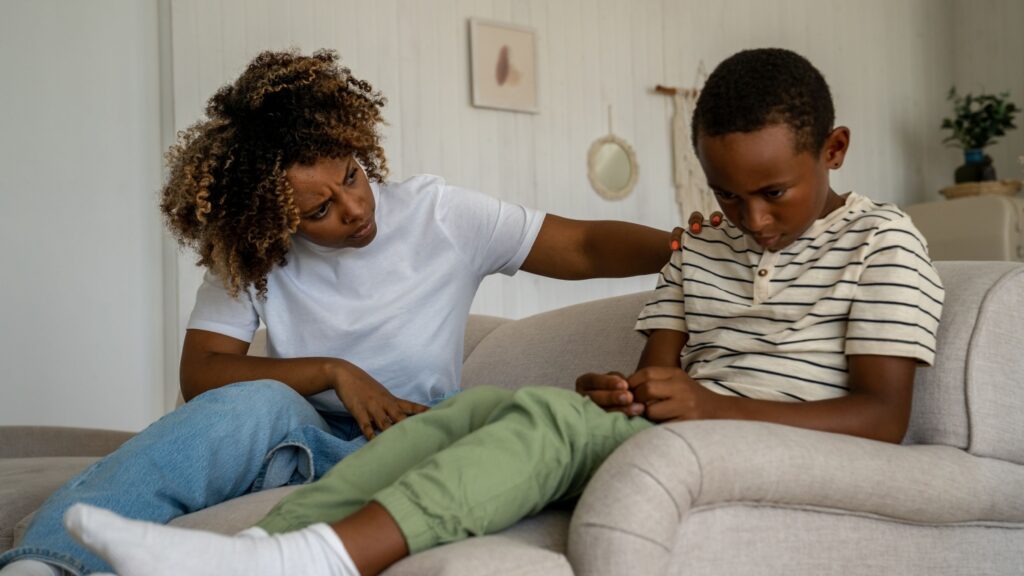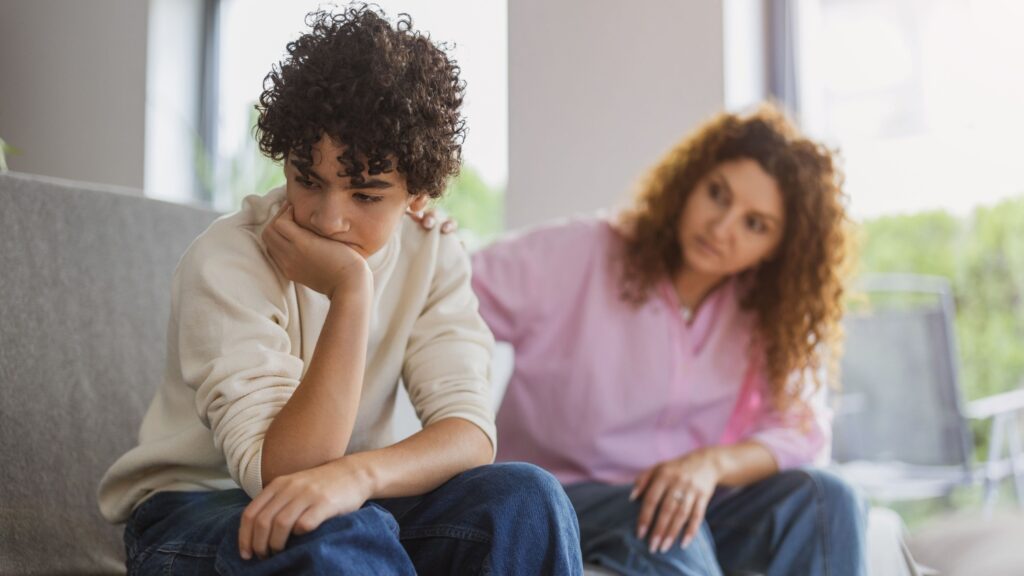
I met my husband on a blind date. Sounds ordinary enough. But it wasn’t. A long-time friend of mine called me one day and said, “Sit down. My wife and I have prayed about this, and we want you to meet someone. He’s a widower with three kids.” Ugh. And then he told me some of the awful details. Cancer. A four-year, hard-fought battle. Three beautiful kids and this strong man of great character left behind. I couldn’t comprehend a person my own age having gone through such a trauma. And what about the kids?
The gravity of what they had lost began to set in the very first time I met them. A picture of their mom and her obituary was framed in the entryway of their home. Her handiwork was everywhere. She had made the curtains in the kids’ rooms, and hung the wallpaper. She had decorated every room. I looked through albums, and more albums, of the birthday parties she had thrown for them and the hairstyles she had fashioned for the girls. The Christmases, dance recitals, soccer games, baseball practices–all of them captured her smiling face, loving touch, or playful sense of humor. Her hand-written recipe cards were in the kitchen; her coat was in the closet. But the warmth and security of her presence was most certainly gone. Now what?
One out of seven children will lose a parent or sibling before the age of 20.[1] That statistic overwhelms me.
My kids were 6, 8, and 10 when their mom died. I fell in love with their dad, and I fell in love with them. They were 9, 11, and 13 when I became their second mom. I made most every mistake a person could make in trying to navigate them through their grief. I didn’t know what I was doing. Our lives seemed too frantic, at the time, to try to figure it out. I was desperately trying to make a home for our kids, while also trying to manage the effects of their trauma. I see everything more clearly now that they are grown. I’ve learned a lot, both from Scripture and from experience, about broken-heartedness. What does a broken-hearted child need in order to heal? To re-engage with life? To prosper? To believe in God’s goodness again? The short answer is Jesus. Revealing Jesus to our sorrowful children is our privilege and our calling. The long answer, well let me take a crack at it:
Grieving kids feel alone.
In fifth grade our oldest daughter, Kristina, was placed in a grief group at her public school. The school counselor was trying to facilitate some discussion by pointing out the kids’ body language and what it said about how they were feeling. Our daughter looked at him with fury and said, “Did your mom die?” When he replied, “No” she said, “Then you don’t know anything about how I’m feeling.”
Grieving kids often feel alone. They think no one understands what they’re going through. This gets magnified in their thoughts and sometimes manifests itself in a tornado of angry outbursts, tantrums, obstinacy, and other tempestuous behaviors. Sometimes it manifests itself in depression, withdrawal, apathy, or panic. Don’t take these behaviors personally. I did. Big mistake. This is just what childhood grief looks like. It’s rough and raw. Your child doesn’t hate you. She hates being in pain.
At times my kids’ overblown emotions made me want to pull away, to punish, or to control. But when I think back on it, I know they were just trying to communicate how traumatized they felt. They were too young to tell me with words. They couldn’t articulate their inner turmoil so they showed me with chaotic behavior. In those terribly hard moments, I wish someone had told me how important it was to calm myself first, and then try to sympathize. What would it feel like if I had lost my mom at their age? Correction of their bad behavior might be necessary but I’d say double down on love and empathy. Oh what a stretch that is. But it works. Then help them, by asking many, many questions, to tell you what’s in their heart.
Another thing I found very helpful, when my kids felt all alone in their pain, was to ask them about their mom. What was she like? What do you remember about her? How did she make you feel special? I found they were eager to tell me. You know those recipe cards I said were in the kitchen? Kristina and I went through every one of them. We saved her favorites. I ended up learning to make one of their mom’s recipes, the one the kids liked the most, Korean flank steak. So let your kids tell you how much they loved the one they lost. Doing this created a very deep bond between my kids and me. I think they would tell you that sharing their mom with me made them feel less alone.
Grieving children have many unanswered questions.
Their souls are swarming with unrest. Inside they may be screaming, “Where is God?! Why has this happened to me?!” And because of their experiences, they will often conclude God isn’t real . . .God doesn’t love me . . .God isn’t kind. Eventually these kids will want answers to some pretty sophisticated questions about God. Mine did. Why does He allow people to die? If God is good, why is there so much evil in the world? What will we do in heaven? Does God answer prayers?
Someone has to anticipate and answer these questions with the hope and comfort of God’s Word. Our faith, our knowledge of the Word, and our personal relationship with Jesus are critical in helping our kids through their dark valley. We can use the Bible to tell our kids about people who lost loved ones or were trapped in terrible circumstances. We can point to David, Ruth, Joseph and so many others to show them how God healed, blessed, and delivered them, and gave them extraordinary futures. We can teach our kids about death too, and how it originated. That way they will never have to wonder if the death of their loved one was their fault, or God’s fault. God hates death. They must know that.
Ultimately behind all of a grieving child’s questions is a deep need to be reassured of God’s goodness. We have the love of Jesus, living inside of us, to give them that assurance. We can all testify of the extraordinary ways God has been good to us, especially when we’ve faced difficulties. The revelation of God’s goodness produces faith and hope for the future.
Finally I will share with you one revelation that has revolutionized my understanding of broken-heartedness and its remedy.
Grief affects the spirit of a person.
“A merry heart makes a cheerful countenance, but by sorrow of the heart the spirit is broken.” Proverbs 15:13 (italics mine)
“The Lord is near to those who have a broken heart, and saves such as have a contrite spirit.” Psalm 34:18 (italics mine)
A broken heart and a broken spirit go hand in hand. Grief is a spiritual issue. If a child’s spirit is broken by sorrow, who can mend it?
“He (Jesus) heals the brokenhearted and binds up their wounds.” Psalm 147:3
Ultimately examining grief does not heal grief. Jesus does.
Jesus heals broken spirits. He does this by revealing His character and nature to us. It is not as important for children to understand their grief as it is for them to know their Healer.
Kristina’s reflection on Jesus’ crucifixion was the turning point in her grief. That’s because there is no better comfort than knowing Jesus’ heart for us. When a child no longer doubts His goodness, the healing begins.
I am extraordinarily blessed to have three beautiful, loving kids who call me Mom. What ultimately led my kids back, from despair into faith and life, was knowing Jesus is good, Jesus loves them, Jesus is with them, and Jesus has eternally good plans for them. Jesus. He’s the short answer. He’s the long answer.
To order the great resource for children click here: Emily Lost Someone She Loved
For more information helping children grieve, contact Kathleen Fucci Ministries
Kathleen Fucci earned a B.A. in Psychology from The University of the South and an M.A. in Theology from Fuller Theological Seminary. She is a conference speaker and has taught Bible studies for churches in Southern California, including The Vineyard Church of Anaheim and Rock Harbor Church.
Her special areas of interest include: Christian apologetics, Biblical exegesis, eschatology, and health and healing, with extensive research in human physiology and psychoneuroimmunology (the effect of thoughts and emotions on the body’s immune system), as well as neurocardiology and neurotheology. She has a passion for helping others discover and walk in their full inheritance in Christ Jesus.
Kathleen is an award-winning children’s picture book author, and recently finished her second picture book to offer hope and healing to children grieving the loss of someone they love. She is a wife and mother of three adult children, who lost their mom when they were young.
[1] Findings from http://www.hellogrief.org/about/life-with-grief-research/ 2015; 5:5






